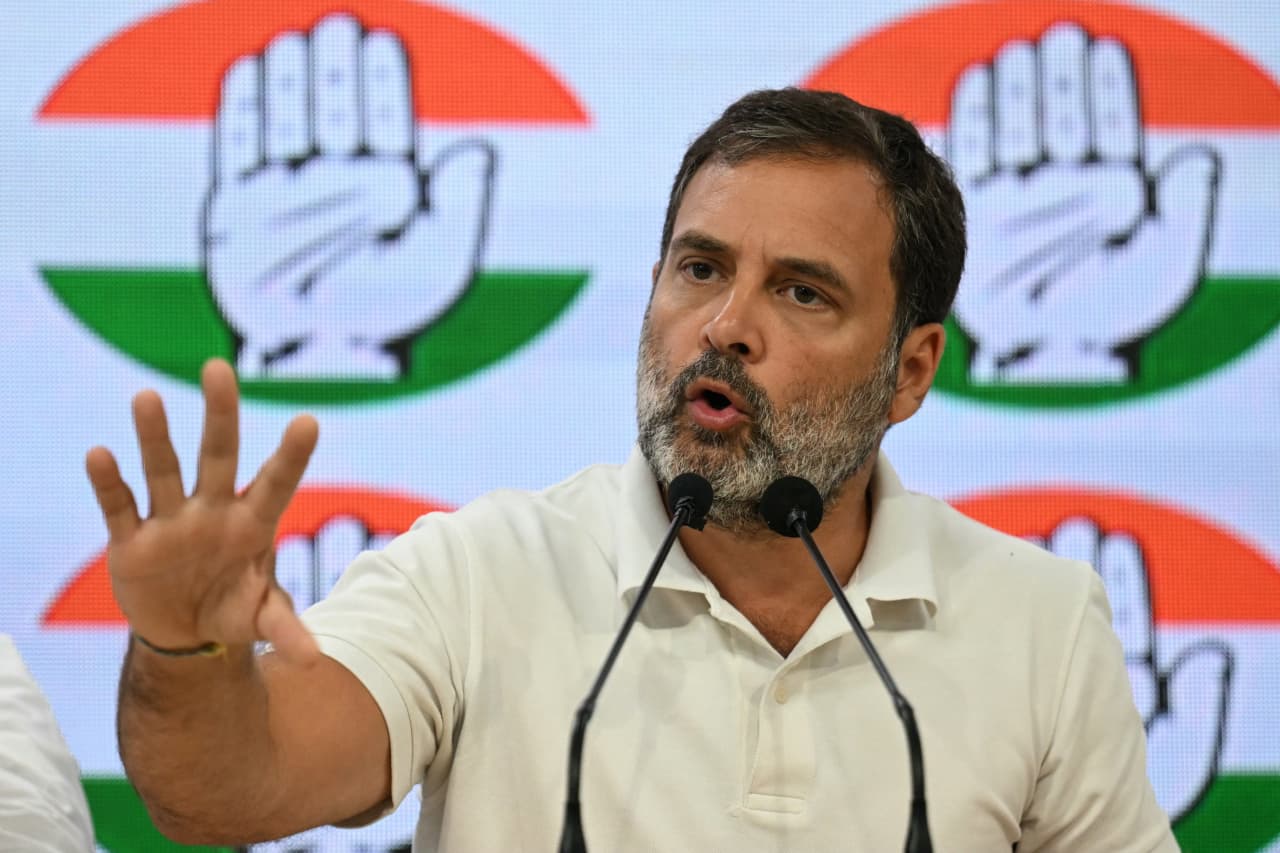
India’s main opposition, the Congress Party, presents a cautionary tale about identity politics. Last week the party released its key promises for the coming national elections. Congress, after a decade out of power, hopes to engineer a comeback by increasing caste-based quotas in education and employment. It would be a disaster.
The party’s de facto leader, Rahul Gandhi, argues that so-called upper castes are disproportionately represented at the apex of power. He wants each caste group’s representation to be proportional to its share of the population. If Congress returns to power, he promises immediately to conduct a census of India’s exact caste composition. The party will also pass a constitutional amendment to overturn a more than 30-year-old Supreme Court ruling that capped caste-based quotas at 50% in federal jobs, higher education and state-owned companies.
India’s caste quotas, known as “reservation” in local parlance, strongly resemble the hard-left ideology spewed by American votaries of diversity, equity and inclusion. In their view of Indian society, reservation’s proponents disregard individual effort to focus on ascribed identities over which people have no control. This ideology breeds resentment among those whose educational and employment opportunities are restricted by accident of birth. It can also create self-doubt among quota beneficiaries who don’t feel they earned their success.
The consequences of expanding this Indian DEI would be catastrophic—ranging from social unrest to talent flight and a loss of economic competitiveness. India would almost certainly fall further behind China, whose educational system favors brutally competitive national examinations rather than birth-based admission quotas.
Quotas also contradict Congress’s traditional presentation of itself as a unifying force. Shortly after Indian independence, the party championed reservation for two traditionally marginalized groups—Dalits, once called untouchables, and tribals, a broad term that includes animists, hunter-gatherers and forest dwellers—but the party’s top leaders also expressed a deep distaste for perpetual caste quotas.
Mr. Gandhi’s great-grandfather and India’s first prime minister, Jawaharlal Nehru, wrote of the policy: “I am against any such step that promotes inefficiency and takes us toward mediocrity.” In 1980 Nehru’s daughter, Indira Gandhi, campaigned successfully for prime minister in part by contrasting Congress with parties that emphasized caste solidarity over competent governance.
In 1990, a short-lived government led by Janata Dal, a leftist Hindi-belt party, dramatically expanded caste quotas from 22.5% to 49.5% and added in other “backward classes,” the large swath of the population sandwiched between upper castes and Dalits in India’s traditional hierarchy. In Parliament, former Prime Minister Rajiv Gandhi, Rahul Gandhi’s father, questioned the move. He extolled equality of opportunity and the goal of a “casteless society.” Ultimately, though, Congress—like every other Indian party—went along with the new policy.
What changed for Congress? For starters, it became desperate. Opinion polls show Prime Minister Narendra Modi’s Bharatiya Janata Party on track to wallop the Nehru-Gandhi dynasty scion for the third time since 2014. For Rahul Gandhi, raising the reservation issue is a Hail Mary.
Congress is also attempting to unravel the BJP’s biggest political achievement—built over decades—of largely uniting the Hindu community’s roughly 3,000 castes and 25,000 subcastes under a single pan-Hindu nationalist ideology. Under Mr. Modi’s leadership, the BJP has won a majority or plurality of all major largely Hindu groupings—upper castes, backward castes, Dalits and tribals—in two successive elections.
As the Congress logic goes, if it can break this loose coalition of BJP voters, it can return to power. The last officially released Indian caste census dates to British rule in 1931, but according to estimates, Dalits, tribals and other backward classes together account for roughly 65% to 70% of the population. The strategy is to peel voters off from this bloc while also appealing to Muslims and other religious minorities (about 20% of the population), many of whom are mistrustful of Hindu nationalism.
Fortunately for India, Mr. Gandhi’s latest electoral gambit appears unlikely to succeed. For starters, Mr. Modi himself belongs to a backward caste of oil pressers from Gujarat, while Mr. Gandhi’s forebears were Brahmins—the priestly caste that sits atop the traditional fourfold caste hierarchy.
Second, over the past 30 years the BJP has changed its social composition dramatically. In 1996 half the cabinet in a brief BJP government was Brahmin. Today it’s less than a quarter. None of the party’s top three leaders—Mr. Modi, Home Minister Amit Shah or Uttar Pradesh Chief Minister Yogi Adityanath—are Brahmins. Less than half the party’s 12 chief ministers, who run Indian states, belong to any of the three upper caste groups—Brahmins, Kshatriyas (warriors) and Vaishyas (merchants). Only two BJP chief ministers are Brahmin.
The decline of Congress is a problem for India, which needs a strong opposition party to safeguard democracy. But to reclaim power Congress must show itself capable of wise governance. Mr. Gandhi’s madcap ideas suggest the opposite.
News Related-
Antoine Dupont still hurt by 'injustice' of World Cup loss to Springboks
-
China's New Aircraft Carrier Begins Catapult Testing
-
Aircraft Downed Inside Russia By Patriot System: Ukrainian Air Force
-
“Am I Prog’s Taylor Swift? That’s a debate that could run and run”: why Peter Hammill re-recorded his Enigma-era albums
-
Car With Pro-Russian Fighters Blown Up by Resistance: Exiled Mayor
-
Europe and African nations must find effective common ground in dealing with migration influx
-
Springbok lock opts not to renew contract with URC team
-
Pravin Gordhan’s deathly legacy: A threat to SA’s economic future
-
Antoine Dupont STILL hurt by ‘injustice’ of Rugby World Cup loss to Springboks
-
Rubber stamping NHI Bill will have damaging consequences for SA for generations
-
Inside horrific conditions Hamas hostages suffered including losing 15lbs in 50 days
-
After the Bell: SA’s NHI healthcare disaster starts right here
-
Gupta-linked development land for sale
-
Gary Neville begrudgingly claims brilliant Man Utd midfielder ‘looked like a Man City player’ in Everton mauling
